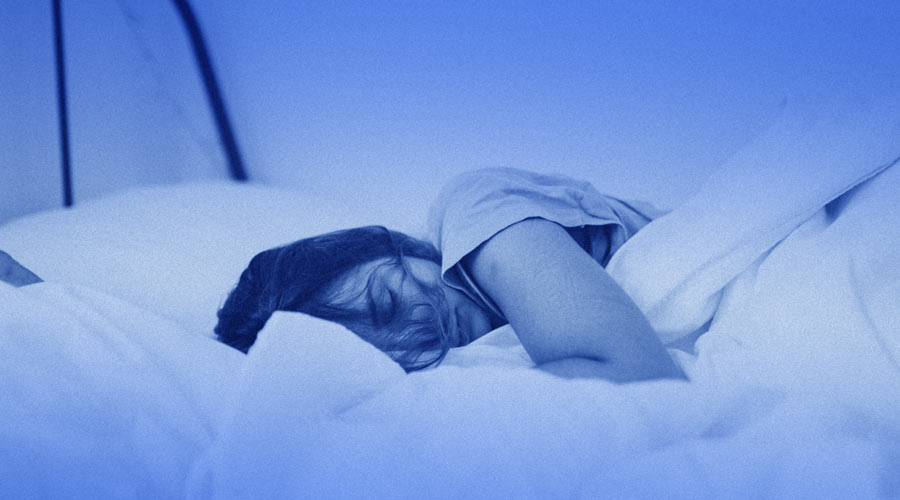If you’ve ever nodded off at peculiar times and places, such as a business meeting or a bus, you know the consequence of insufficient sleep. Besides being unpleasant, not getting enough sleep over the course of time can result in weight gain, depression…even a decrease in brain size! Researchers are beginning to understand that our health doesn’t rely on just the quantity of sleep but more importantly, the quality of sleep.
Some of the proven tips for a better night’s sleep are pretty obvious: avoid stimulants taken late in the day, give yourself time to wind down before going to sleep and try to keep stress out of the bedroom as much as possible.
But, as promised, here are a Nine Ultimate Ways to consider:
- Avoid Using a Snooze Button.
Even after a full night’s sleep, dozing off for even a few more minutes can actually make you feel more tired. The reason is that doing so can make your body enter a new sleep cycle, resulting in a sleepy sensation. Alertness, memory and reaction times can be affected by this. The only way to remedy this is to set a strict wake-up time and adhere to it. Get up when it’s time to get up (after getting the required number of hours, of course). - Get More Time Around Light
A study in the Journal of Clinical Sleep Medicine has found that the brains of office workers whose desks were located far from windows got fewer light or dark cues. This resulted in disturbed circadian rhythms. Compared with workers who were located near windows, they received an average of 46 fewer minutes of sleep per night. - Choose Paper Over Electronics
While reading before shut-eye may help you wind down for the night, a study by the National Academies of Sciences found “iPad readers had a delayed circadian rhythm, indicated by melatonin levels, of more than an hour.” In addition, “participants who read from the iPad were less sleepy before bedtime, but sleepier and less alert the following morning after eight hours of sleep.” In general, it’s best to avoid all electronic devices before turning off the lights. - Avoid Alcohol Before Bed
While alcoholic drinks may make you feel drowsy, it does mess with your sleep cycles. Research shows that the brain waves of those who drink before bed had more delta brain activity (which is associated with deep sleep) but also more alpha brain activity which is associated with resting…but not sleeping…phases. Any benefit of falling asleep quicker by drinking was removed by disruptive alpha patterns caused by drinking right before bedtime. - Moon Cycles
Believe it or not, moon cycles may impact your sleep. Current Biology Magazine reported that study participants who slept in a completely dark lab got an average of 20 fewer minutes of sleep per night on the days shortly before or after a full moon. They also showed lower levels of melatonin and 30% less EEG activity, which is associated with deep sleep. - Get a Day Job
Unfortunately for those who are stuck working the night shift, it may be bad for your sleep. A study in the American Journal of Preventive Medicine followed almost 75,000 nurses and found those who worked rotating night shift schedules had an 11% higher risk of dying early than those who did not. In fact, for those who work night shift for more than 15 years, their risk of dying from heart disease was 38% higher than those who work the day shift. They also had a higher risk for several types of cancer. - Get More Exercise
Burn, baby, burn…calories, that is. A study in the Journal of Clinical Sleep Medicine found that older adults who suffered from insomnia were able to sleep 45 to 60 minutes of additional sleep per night just by getting 30 minutes of exercise, three or four days a week. This, however, needed to be done over the course of about four or more months to start seeing any effects. - Don’t Stress the Periodic Wakeups
Sometimes, you just wake up in the middle of the night and have issues getting back to sleep. During those times, try not to stress getting back to sleep. Take a break from sleeping. Read a book or some other lite activity. - If All Else Fails, See a Doctor
If you’re not getting regular sleep and none of the above-mentioned tips help, then it may be time to seek medical help. According to the American Academy of Dental Sleep Medicine, 18 million Americans have sleep apnea, a disorder in which the airway becomes blocked, causing sufferers to snore loudly and stop breathing for short periods. Sleep apnea is not just about making you tired. It can be dangerous and requires medical attention. There are time-tested treatments for sleep apnea that a medical professional can discuss with you. - We Lied About There Only 9 Ways of Getting Great Sleep
Just throwing one more great tip to getting a great nights sleep. And, that’s to purchasa a brand new comfortable mattress from Vermont Bedrooms. We’re physically located in Rutland, Vermont (for those of you in the area) but can get you a great deal right here on our website! Yes, you can have one delivered right to your home through the magic of the internet! Take a look through this website and if you do have any questions, please feel free to call our shop during business hours at 1-800-520-BEDS (2337). We’re pretty friendly and we’ll love to get you set up right.


